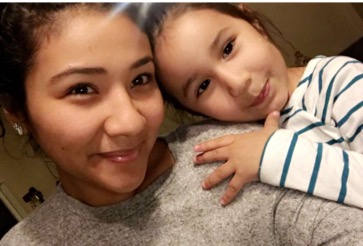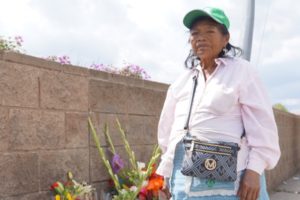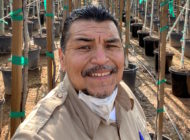“I can’t imagine walking across that stage, as a first-generation college graduate, and my family not being able to experience that with me.”
By ANGELICA TAPIA
EL NUEVO SOL
My mother’s husband was arrested and deported to Mexicali, Mexico in a matter of hours. Not only did we not know how to find him, but also, we didn’t know if he was ok.
When we finally got a hold of him the next day he told us, Tuve que dormir en el suelo, ahí en la calle (I had to sleep on the floor, there on the street). He had to beg for money to make a call to contact us. We drove 4 hours to find him waiting for us next to the payphone.
My family who consists of my mom, two younger brothers of 16 and 19 years, and little sister of 4 years, have to relocate to Mexico. Because I am in college I can’t follow them. Now, I am left in Northridge, while my grandma is in Los Angeles, we are all we have.
My grandma and I drive 235 miles every weekend to spend time with them. My little sister, who I am extremely close to doesn’t understand why I don’t live with them. Every time I visit she asks, “Are you sleeping me tonight?” and it breaks my heart that I must tell her, “Not tonight, Eli.” Or how on Sunday nights we have to sneak out so she won’t see us grabbing our luggage and leaving because otherwise she will just cry and cry for hours.
Deportat ion not only affects the person that is deported but their family as well. There are many obstacles a family must do just so they can be with their family. Travel, crossing the border (hours waiting en la línea), and the hardest part of telling them “see you soon”. According to U.S Immigration and Customs Enforcement, 250,255 immigrants were deported in 2016. That is 250,255 families that were affected.
ion not only affects the person that is deported but their family as well. There are many obstacles a family must do just so they can be with their family. Travel, crossing the border (hours waiting en la línea), and the hardest part of telling them “see you soon”. According to U.S Immigration and Customs Enforcement, 250,255 immigrants were deported in 2016. That is 250,255 families that were affected.
As graduation is approaching, I am constantly worried whether my family will be able to attend. Since they recently purchased a piece of land in Mexicali, and starting to build a home, it will be hard to leave what they have unattended, over the weekend. Unfortunately, my step-dad won’t be able to attend…I wouldn’t want him to risk going through that again. I can’t imagine walking across that stage, as a first-generation college graduate, and my family not being able to experience that with me. As the oldest child, I want to be an example for my siblings; this has now become an obstacle because of distance.
Tags: CSUN deportation family separation





















